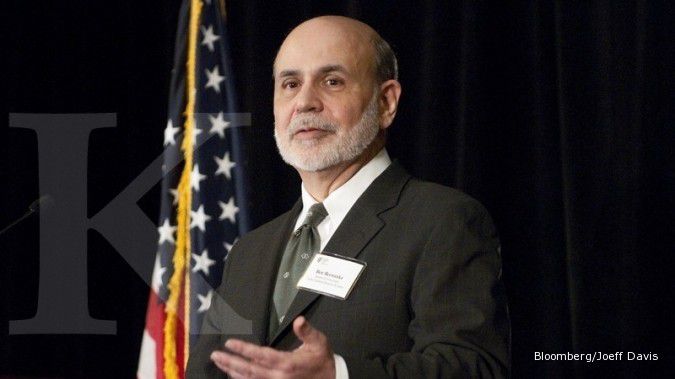JAKARTA. The government is considering reducing carbon emissions in the aviation industry by requiring airline operators to mix regular avtur (aviation turbine fuel) with biofuel.
Transportation Minister EE Mangindaan said the new mechanism was expected to be implemented in 2016 and that the ministry had set a target to increase the usage of biofuel in every aircraft operating in the archipelago on a yearly basis.
“We want to mix avtur with 2 percent biofuel in 2016 and plan to increase the amount to 3 percent in 2020,” Mangindaan said after the recent signing of a Memorandum of Understanding (MoU) with Energy and Mineral Resources Minister Jero Wacik on renewable energy in the aviation sector.
“We are currently drafting the action plan for this new policy and we are committed to start working on this project by next year.”
The MoU signing was also witnessed by related institutions such as state-owned oil and gas firm PT Pertamina, state-run airport firms Angkasa Pura I and Angkasa Pura II and national flag carrier Garuda Indonesia.
Mangindaan said that the policy was crucial since commercial airlines had been growing rapidly for the past five years, with more planes emitting carbon dioxide into the skies.
According to ministry data, the number of aircraft operating in the country grew from 962 aircraft in 2008 to 1,319 aircraft by the end of 2012, while passenger numbers rose from 41.5 million in 2008 to 77.2 million last year.
The figures were expected to increase every year as the economy remained healthy, he added.
The largest domestic player, Lion Air Group, alone, has signed a US$46.4 billion deal with top aircraft makers Airbus and Boeing, for 234 single-aisle passenger A320 and 230 short-haul B737 planes.
The planes will be delivered in phases from 2015 to 2024 and will mostly operate within Indonesian skies. Meanwhile, full-service carrier Garuda Indonesia has announced that it will operate 154 aircraft by the end of 2015.
He also said that the ministry would report the progress of this program to the International Civil Aviation Organization (ICAO) as the government was teaming up with the organization to improve the nation’s air transportation industry.
The ministry and the ICAO signed a bilateral agreement in Canada in September 2013 to jointly develop local civil aviation human resources and to create a range of green aviation objectives, including an improved master plan on emissions, the promotion of alternative fuel initiatives and efficient airspace design.
The collaboration will be effective for three years. (Nurfika Osman)
/2011/04/28/226574957.jpg)














